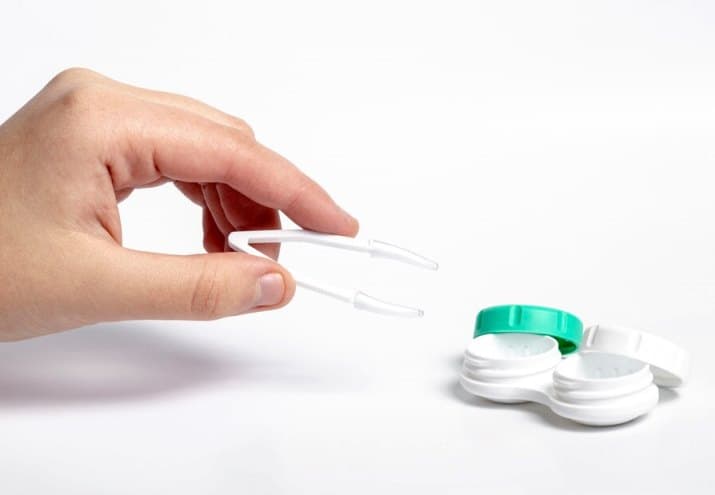Contact lens care is crucial for maintaining eye health. Proper use of contact solution ensures lenses remain clean and free from harmful bacteria. Reusing solution compromises its effectiveness, increasing the risk of infections like conjunctivitis or keratitis. Fresh solution is essential for disinfecting lenses, removing protein deposits, and maintaining comfort.
Always discard used solution and replace it with a new one. This practice helps prevent potential eye issues and ensures optimal vision. Make lens care a priority to protect your eyes and enjoy a clear, comfortable experience. Proper hygiene and fresh solution usage are key to healthy eyes.
What is Contact Solution?
Contact solution helps clean and store contact lenses. It removes dirt and germs. Using it properly keeps your eyes healthy.
Fresh solution is always best. Old solution can grow bacteria. This can cause eye infections. Clean lenses feel better in your eyes. Always use fresh solution for clean lenses.
Some people think reusing contact solution is okay. This is not true. Old solution loses its cleaning power. Bacteria can grow in reused solution. This can harm your eyes. Fresh solution is the safest choice. Don’t take chances with your eye health.
Read Also: How to remove lenses preventing infections
Composition Of Contact Solution
Contact solution has several important ingredients. Saline is the main ingredient. It helps to clean and store lenses. Disinfectants kill germs and bacteria. Buffers keep the solution at the right pH level. Surfactants help to remove dirt and debris. Lubricants keep lenses moist and comfortable.
Risks Of Reusing Contact Solution
Reusing contact solution refers to the practice of using the same solution more than once to clean or store lenses. This practice is dangerous for several reasons:
Reduced Disinfection Efficacy
Contact lens solutions are formulated to kill microorganisms within a specific time frame. Once the solution has been used, its disinfectant properties diminish. Reusing the solution means it may no longer be effective at killing bacteria, viruses, or fungi, increasing the risk of eye infections.
Bacterial Growth
Old contact solution can grow bacteria. This bacteria can stick to your contacts. Dirty contacts can make your eyes red and itchy. They can also cause serious eye infections. Always use fresh solution to keep eyes healthy.
Reusing contact solution can lead to fungal infections. Fungi can grow in old solution. These fungi can get on your contacts. Fungal infections can damage your eyes. They can also make your vision blurry. Use new solution to avoid these infections.
Protein and Debris Accumulation
Contact lenses accumulate proteins, lipids, and other debris from tears and the environment. Proper cleaning with fresh solution helps remove these deposits.
However, reusing solution means that these deposits remain in the liquid, which can lead to buildup on the lenses. This buildup can cause discomfort, blurred vision, and increase the risk of infection.
Increased Risk of Acanthamoeba Keratitis
Acanthamoeba keratitis is a rare but severe eye infection caused by a free-living amoeba found in water and soil. This infection is associated with improper contact lens hygiene, including the reuse of contact solution.
Acanthamoeba can survive in contaminated solution and, if it comes into contact with the eye, can cause a painful and potentially blinding infection.
The Importance of Proper Lens Care
To avoid the risks associated with reusing contact solution, it’s essential to follow proper lens care guidelines:
- Always Use Fresh Solution: Each time you clean or store your contact lenses, use fresh solution. Never top off old solution with new; instead, discard the used solution and replace it with a fresh supply.
- Clean Your Lens Case Regularly: Your contact lens case can also harbor bacteria and should be cleaned regularly. Rinse the case with fresh contact solution (never water) and allow it to air dry. Replace your lens case every three months or sooner if it becomes damaged.
- Follow Your Eye Care Professional’s Instructions: Your eye care professional will provide instructions on how to care for your lenses and which solution to use. Follow these guidelines closely to minimize the risk of infection and maintain eye health.
- Never Use Water to Rinse Lenses: Water, including tap water, is not sterile and can contain microorganisms that are harmful to the eyes. Never use water to rinse or store your contact lenses, as this can increase the risk of infection.
Check Also: The risks, benefits and side effects of LASIK eye surgery
Conclusion
Reusing contact solution may seem like a harmless way to save money, but it can lead to serious eye health risks, including infections that could threaten your vision.
Proper lens care, including the use of fresh contact solution, is essential to maintaining eye health and preventing complications. Always follow the recommended guidelines for lens care, and consult with your eye care professional if you have any concerns.
By taking these precautions, you can enjoy the benefits of contact lenses while keeping your eyes safe and healthy.
